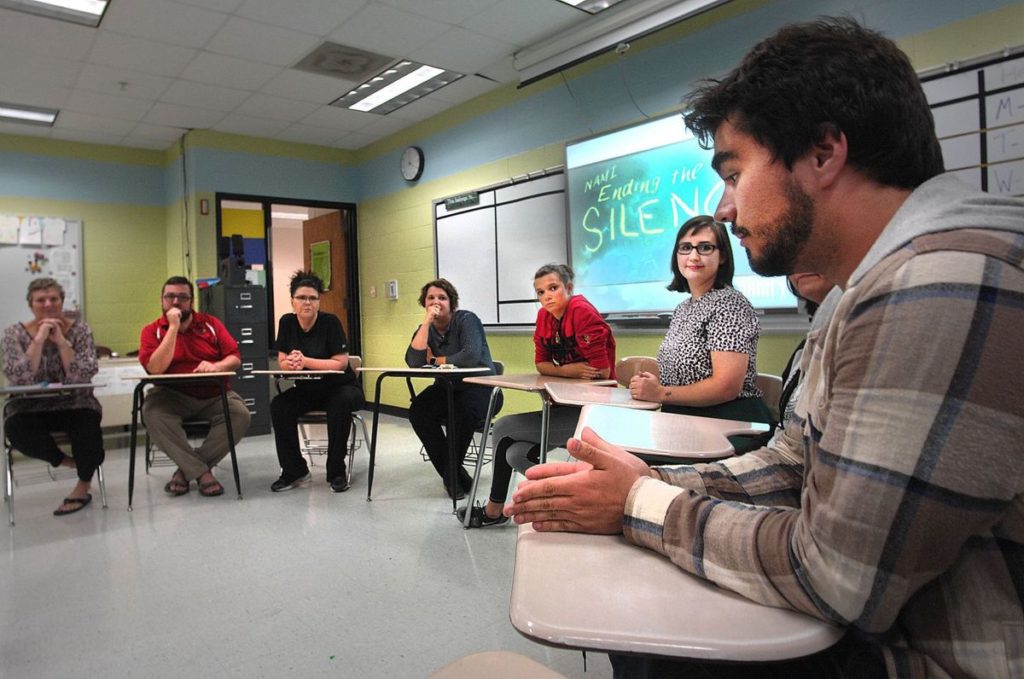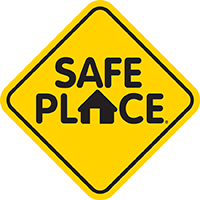“The Ending the Silence program is not about suicide. It’s about hope. It’s not about how bad things were. It’s about how good things can get.” Colleen O’Connor, Project Oz Prevention Specialist, explained during the discussion at Normal Community West High School, Normal, IL, about the Netflix television series “13 Reasons Why” and the topic of teen suicide.

Part 1 of the 9-10-17 article in the Pantagraph may be found here.
Part 2 of the 9-11-17 article may be found here.
To teens grappling with depression or suicidal thoughts: “Don’t hold it in,” Jordyn Washer, now an IL State University senior, who previously confided in a close teacher which helped pull her out of the darkness of depression and self-harming when she was 15.
Help Is Available.
Warning signs that a person may be contemplating suicide include talking or writing about hurting or killing himself or herself; looking for pills, weapons or other means of dying by suicide; expressing hopelessness; increasing risk-taking behavior such as through alcohol or drug use; giving away prized possessions; saying goodbye; withdrawing from friends and family; dramatic changes in mood; feeling no sense or purpose.
Take the warning signs seriously. If you have an immediate concern, call 911.
Ask the person if he or she is thinking about taking their life. Listen to them. Validate their feelings. Don’t leave them alone until the crisis has passed. Remove weapons or other possible means of dying by suicide. Tell the person that thoughts of suicide are common, don’t have to be acted on, that help is available and people care.
Help is available locally from:
PATH (211 or 309-828-1022
Center for Human Services (309-827-5351)
Center for Youth & Family Solutions (309-820-7616)
24/7 Crisis Text Line (text START to 741-741)
National Suicide Prevention Lifeline (800-273-8255)
Trevor LGBTQ Line (366-488-7386)
NAMI Livingston/McLean Counties ([email protected] or 309-287-9913).Sources: Kimberly Klepec, Tosha Maaks, Kristina McDowell, Mental Health First Aid USA, Colleen O’Connor, Adam Snell, Karen Zangerle.
